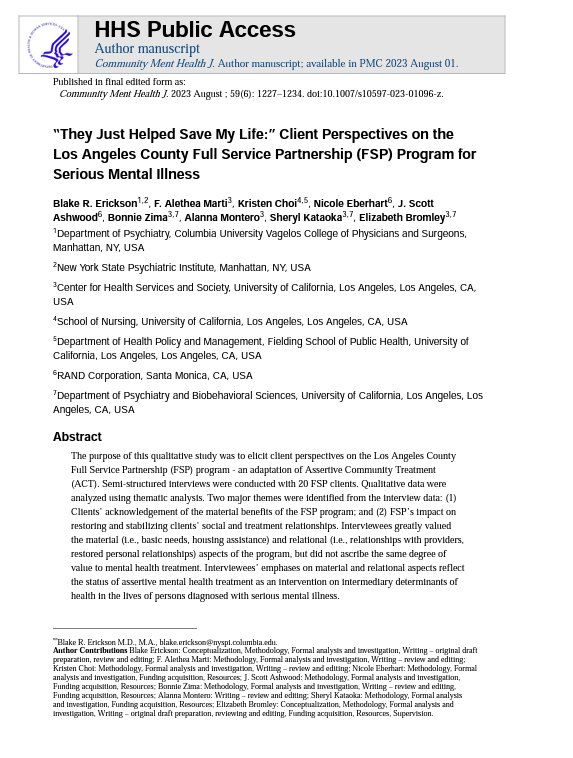Headline
Clients enrolled in an adapted assertive community treatment model in California identify material resources and relational supports as key program benefits.
Context
California’s Full Service Partnership (FSP) program is designed to provide individuals diagnosed with serious mental illness (SMI) who have experienced homelessness, criminal justice system involvement, or frequent psychiatric hospitalizations, with the support needed to receive mental health treatment in community settings, as well as reduce hospitalizations. As an adaptation of the evidence-based Assertive Community Treatment (ACT) model, FSP pairs treatment for mental health and substance use disorder with housing support and the provision of other material resources, delivered by an interdisciplinary care team. In this study, the authors sought to address a gap in the literature related to client perspectives of FSP through semi-structured interviews conducted with 20 FSP clients in Los Angeles County.
Findings
All interviewees identified two primary benefits of FSP: (1) material supports offered, including clothing, food, and medical care; and (2) relational supports it fostered, through both connections with program staff and better stabilized relationships with friends and families. However, staff turnover was identified as a major challenge in maintaining these valuable connections. Notably, most interviewees did not identify mental health treatment when asked about the program’s benefits.
Takeaways
These findings highlight the significance of material needs and relational supports to the well-being of individuals with SMI who experience frequent hospitalization along with homelessness and/or criminal justice system involvement. The authors suggest that similar programs should view addressing health-related social needs as central programmatic features.

